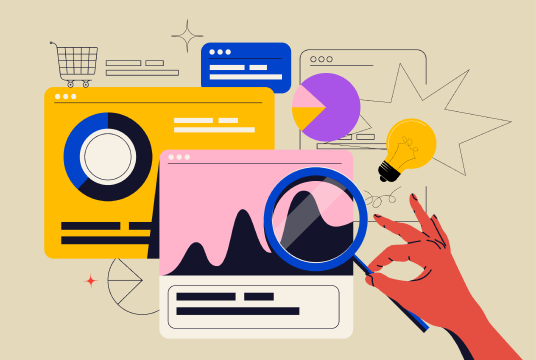Google Wins Nobel for AI Research, Sparks Debate in AI Field

The Nobel Prize for Physics and Chemistry has been awarded to Google’s AI innovators this year. Representing a breakthrough or showing fierce battle in the field?
Key Takeaways
-
Several AI figures affiliated with Google have been awarded the Nobel Prize in Physics and Chemistry.
-
As Google navigates increasing pressure from AI competitors and U.S. regulators, this victory sparks debate about the challenges traditional researchers face in competing with major tech companies in the AI research arena.
-
The implications of this achievement may reshape the landscape of AI development and research collaboration.
On October 9, 2024, Demis Hassabis, co-founder and CEO of Google DeepMind and Isomorphic Labs, and Dr. John Jumper, director of Google DeepMind, were awarded The 2024 Nobel Prize in Chemistry for their groundbreaking work on AlphaFold, an innovative artificial intelligence system that accurately predicts the 3D structure of proteins from their amino acid sequences.
Nobel recognition was also extended to biochemist David Baker for his contributions to protein design, while Geoffrey Hinton, a former Google researcher, was honored in the field of physics.
This significant achievement was announced on the official Google DeepMind website, but it has sparked considerable debate within the scientific community. Critics highlight that, despite Google's leading position in AI research, the company faces mounting challenges from competitors such as Microsoft-backed OpenAI and increasing regulatory scrutiny from the U.S. Department of Justice. As the landscape of AI development evolves, the implications of this Nobel win could reshape the future of research in the field.
General Overview of AlphaFold
Google DeepMind has stated that prior to the advent of AlphaFold, predicting protein structures was a complex and time-consuming process. The introduction of AlphaFold has significantly aided over two million researchers across 190 countries in making groundbreaking discoveries.
Notably, the AlphaFold 2 paper published in 2021 has become one of the most cited publications in the field.
Artificial intelligence has long demonstrated its potential in scientific research as an increasing number of scientists are now leveraging AI for a variety of applications, including data generation, experiment simulation, drug design, modeling complexities, finding new solutions to existing problems, and advancing existing knowledge.
Debate Arises Following Recent Nobel Awards in AI
Just one day after Geoffrey Hinton received his award, Demis Hassabis, Dr. John Jumper, and David Baker also won the Nobel Prize for their groundbreaking contributions to artificial intelligence.
In response to this recognition, Professor Dame Wendy Hall, a computer scientist and AI advisor to the United Nations, commented that while these individuals deserve acknowledgment for their achievements, the absence of winners in mathematics or computer science distorts the overall outcome. This has sparked further discussion about the criteria and categories for prestigious awards in the rapidly evolving field of AI.
"The Nobel prize committee doesn't want to miss out on this AI stuff, so it's very creative of them to push Geoffrey through the physics route," she said. “I would argue both are dubious, but nonetheless worthy of a Nobel prize in terms of the science they’ve done. So how else are you going to reward them?”
In addition to Professor Hall, Noah Giansiracusa, an associate professor of mathematics at Bentley University, also questioned Geoffrey Hinton's award.
"What he did was phenomenal, but was it physics? I don't think so. Even if there's inspiration from physics, they're not developing a new theory in physics or solving a longstanding problem in physics,” explained Noah Giansiracusa.
For numerous individuals, this week's Nobel Prize awards underscore the growing challenges traditional researchers face in competing within the rapidly evolving landscape of science and technology. Noah Giansiracusa emphasized the urgent need for greater public investment in research to support these efforts.
He explained that many large technology companies are not focused on advancing cutting-edge deep learning breakthroughs. Instead, their priorities often lie in monetizing their platforms through extensive online advertising and promoting chatbot technologies. This shift in focus raises concerns about the direction of innovation in the field.
Giansiracusa further noted that while there is indeed room for innovation, much of it lacks a scientific foundation. This situation highlights a broader issue within the industry, where the commercialization of technology can sometimes overshadow genuine scientific inquiry and discovery. As the debate continues, it becomes clear that a balanced approach that values both innovation and scientific rigor is essential for fostering a healthier research environment.
Google's Dominance in Artificial Intelligence
Currently, U.S. regulators are closely monitoring Google for potential actions that could lead the tech giant to divest parts of its business, such as the Chrome browser and Android operating system. These segments are viewed as instrumental in helping Google maintain an illegal monopoly in online search.
The advantages gained from its leading position allow Google and other major tech companies to outpace traditional academics in publishing innovative AI research.
During a press conference on Tuesday, October 8, 2024, Geoffrey Hinton expressed regret about his career trajectory, specifically his decision to leave Google last year to voice concerns about the dangers of AI. He emphasized the need to warn all stakeholders that computers could surpass human intelligence.
Although he departed from Google in 2023, Hinton acknowledged that the company bears significant responsibility for its actions in the evolving AI landscape.
As a dedicated news provider, we are committed to the accuracy and reliability of our information. We go the extra mile by attaching credible sources to support the data and information we present.
- Google DeepMind - https://deepmind.google/discover/blog/demis-hassabis-john-jumper-awarded-nobel-prize-in-chemistry/
- Reuters - https://www.reuters.com/technology/artificial-intelligence/googles-nobel-prize-winners-stir-debate-over-ai-research-2024-10-10/
Alivia Ariatna
As an experienced SEO content writer, I specialize in crafting compelling, keyword-optimized content with extensive research on it. I stay updated with the latest SEO trends and best practices to ensure my content meets both user intent and search engine requirements.
Another post from Alivia
Is ChatGPT Perceptive to Indonesian Writing Rules? A Study
Thu 30 Jan 2025, 08:55am GMT + 7Google Releases Documentation on Google Trends Guide
Mon 04 Nov 2024, 08:22am GMT + 7Google to Remove Sitelink Search Box by November 21, 2024
Fri 01 Nov 2024, 08:39am GMT + 7Google Adds New Recommendations for Product Markup
Tue 08 Oct 2024, 11:24am GMT + 7More from cmlabs News your daily dose of SEO knowledge booster
Bard, an experimental conversational AI service, combines information with language model intelligence. Check out the details here.
With the rapid advancement of AI technology, major search engines like Google and Bing are now equipped with their respective generative AI. Here is the detail.
Google's AI platform, Bard, has updated its capabilities, including language and other features. This update marks a significant step forward in delivering more advanced and responsive AI technology to users.
WRITE YOUR COMMENT
You must login to comment






All Comments (0)
Sort By